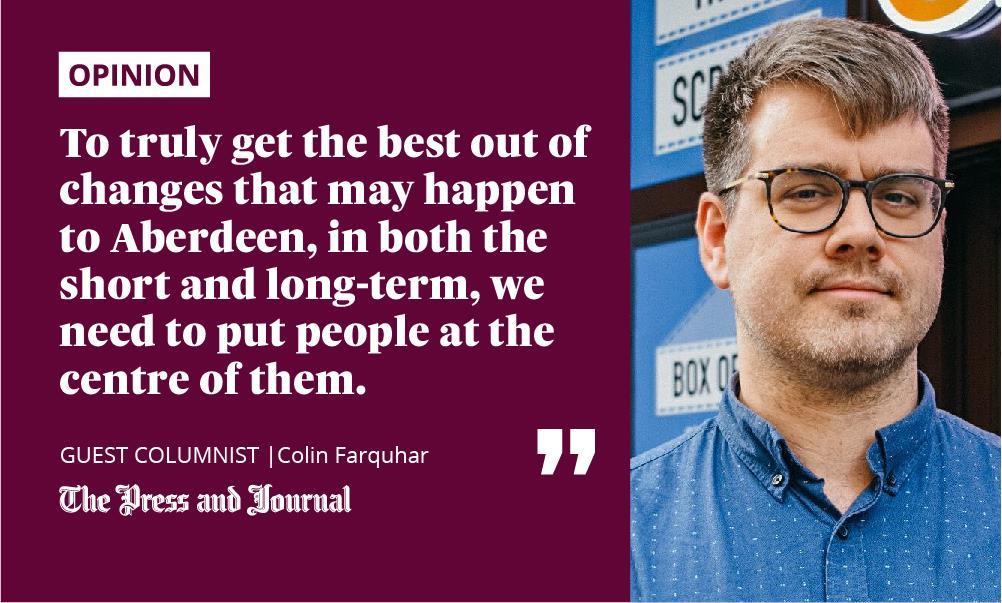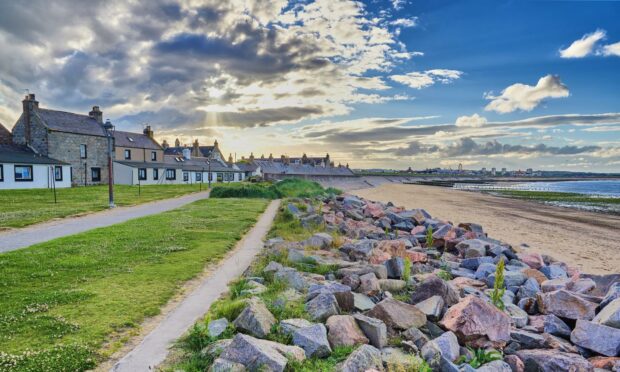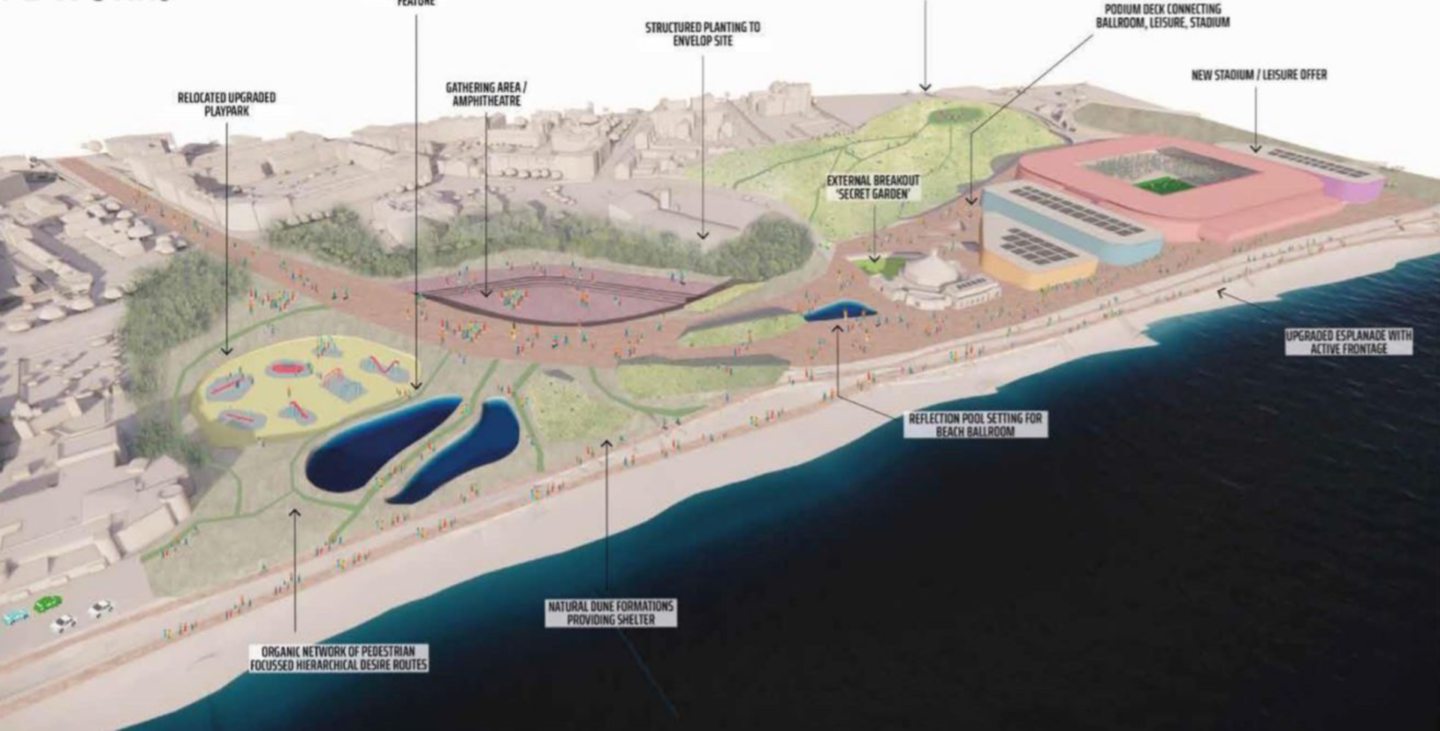On the last Friday of October I took a wee wander down to Fittie after work to watch a film.
This was a bit unusual for two reasons; one being that it was a blowy and rainy autumn night and a bit of a jaunt, the other that my day job is working at Belmont Filmhouse. Usually there aren’t a lot of steps involved in taking in a film after work.
Rather than watching the new Dune or James Bond’s latest outing in No Time To Die, I found myself in the old gospel hall on New Pier Road, just behind the main Fittie square, watching Faces Places – a wonderful Agnès Varda film about filmmaking and street art.
 Sitting in the refurbished Gospel Hall, it was hard not to feel part of the community. I was probably the only person there not from Fittie, other than maybe two volunteers from arts organisation Open Road, there to run the screenings alongside locals.
Sitting in the refurbished Gospel Hall, it was hard not to feel part of the community. I was probably the only person there not from Fittie, other than maybe two volunteers from arts organisation Open Road, there to run the screenings alongside locals.
In a setting like that, you get a real sense of the post-Covid desire to just get out and do things, and to be with other people. Neighbours sharing stories with each other, offering imposters like me a wee glass of wine, and me reciprocating.
It also lets you know that people are willing to get out and do stuff, when the stuff involved is accessible, inclusive and feels safe for them.
Optimism and inclusion are at the heart of cultural Covid recovery
Everyone, I hope, enjoyed the film and I chatted with folk after the show. A film about art within local areas in France, where people young and old get involved in the production and photography, felt good fuel for a conversation about how an old community hall in Fittie is being used as a cinema.
I wonder if we can take a sense of optimism and inclusion from Fittie Film Club and apply it to the wider city as we emerge from the pandemic
Agnès Varda, the director and star of the show, was 88, I think, at the time of filming. Her character shines through in the film and she doesn’t look her age. An ode to how keeping active can keep you young.
The residents who run the community hall also use it for its original purpose, too – a weekly gospel choir. They agreed it keeps them going. It’s something they’ve missed throughout the recent lockdowns.
THANK YOU to everyone who came down to Fittie Film Club, we had an amazing time! Stay tuned for our next film (tbc) on the 19th November 🙂 🥳 pic.twitter.com/QkGZdUK9Eb
— Open Road (@openroadltd) October 30, 2021
It has been a long 18 months for cultural venues in our city, with no lack of uncertainty through that time. There were moments when you wondered whether doors would ever open again. There was an overwhelming sense of relief when they finally did. Some people, particularly those who are older, still have to return, but there’s inspiration to be taken from projects like the Fittie Film Club.
To coax people back into spaces like cinemas, pubs, galleries and football games has felt like a long battle. We’re nearly there and it has been achieved by working hard on Covid safety first and foremost, but also by making customers and audiences really feel like they are part of our communities.
I wonder if we can take a sense of optimism and inclusion from Fittie Film Club and apply it to the wider city as we emerge from the pandemic.
Think how we might better use some of our empty spaces
To truly get the best out of changes that may happen to Aberdeen, in both the short and long-term, we need to put people at the centre of them.
There are huge opportunities, as we develop our post-pandemic recovery and the City Centre Masterplan, to make sure we bring people back into the heart of our city. There are opportunities to help support the organisations that can make this happen.
Planning around pedestrianisation is positive, as are nods to better connecting the city centre with other attractions at the beach and within the harbour areas. For those of us who don’t drive, anything to help a Friday night commute to a film in Fittie through the winter is a plus.
Now that things have opened up, we’ll truly get the best out of our investments in the likes of Aberdeen Art Gallery and the Music Hall. What I would ask for is more of the same, so we can continue to foster that sense of community within our city centre.
After all, if an old gospel hall in Fittie can be turned into a cinema, think how we might use some of our empty spaces – both large and small – and streets to inspire and include everyone.
Colin Farquhar is head of cinema operations for Belmont Filmhouse in Aberdeen

